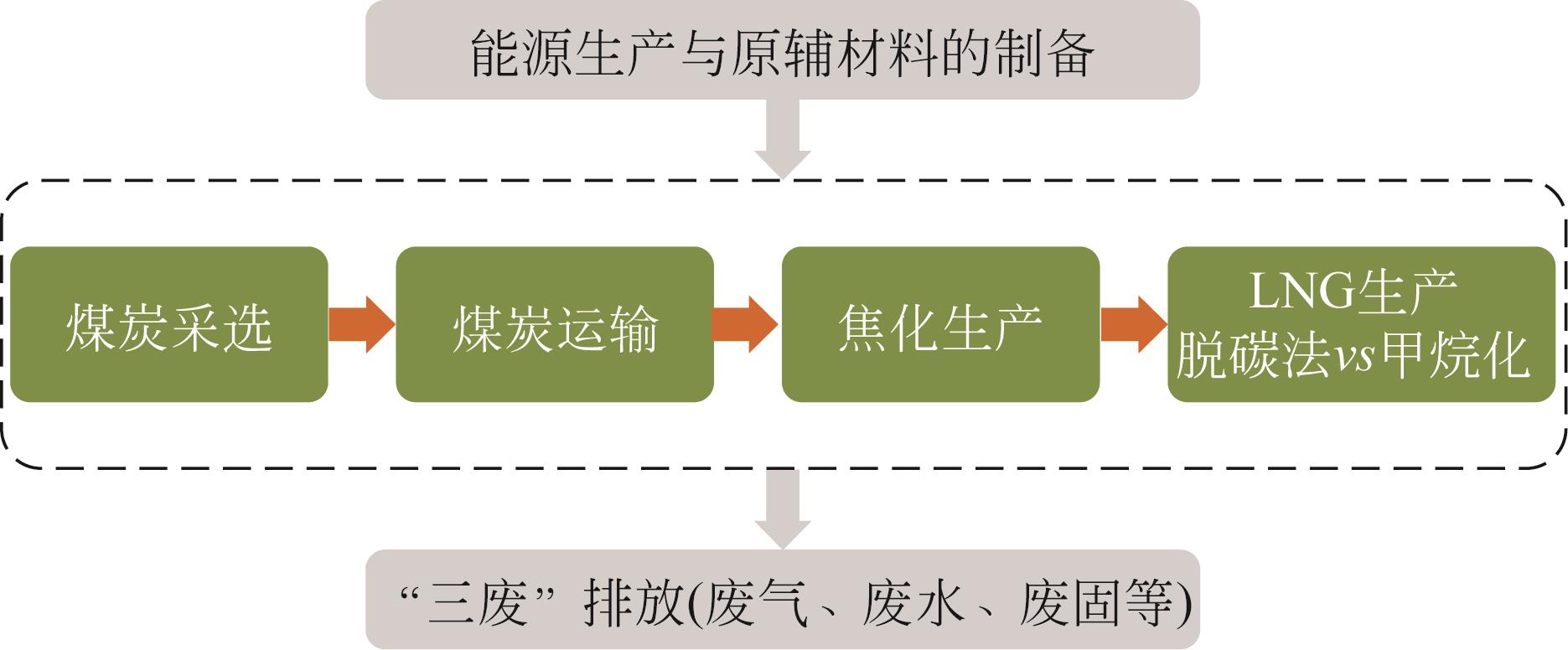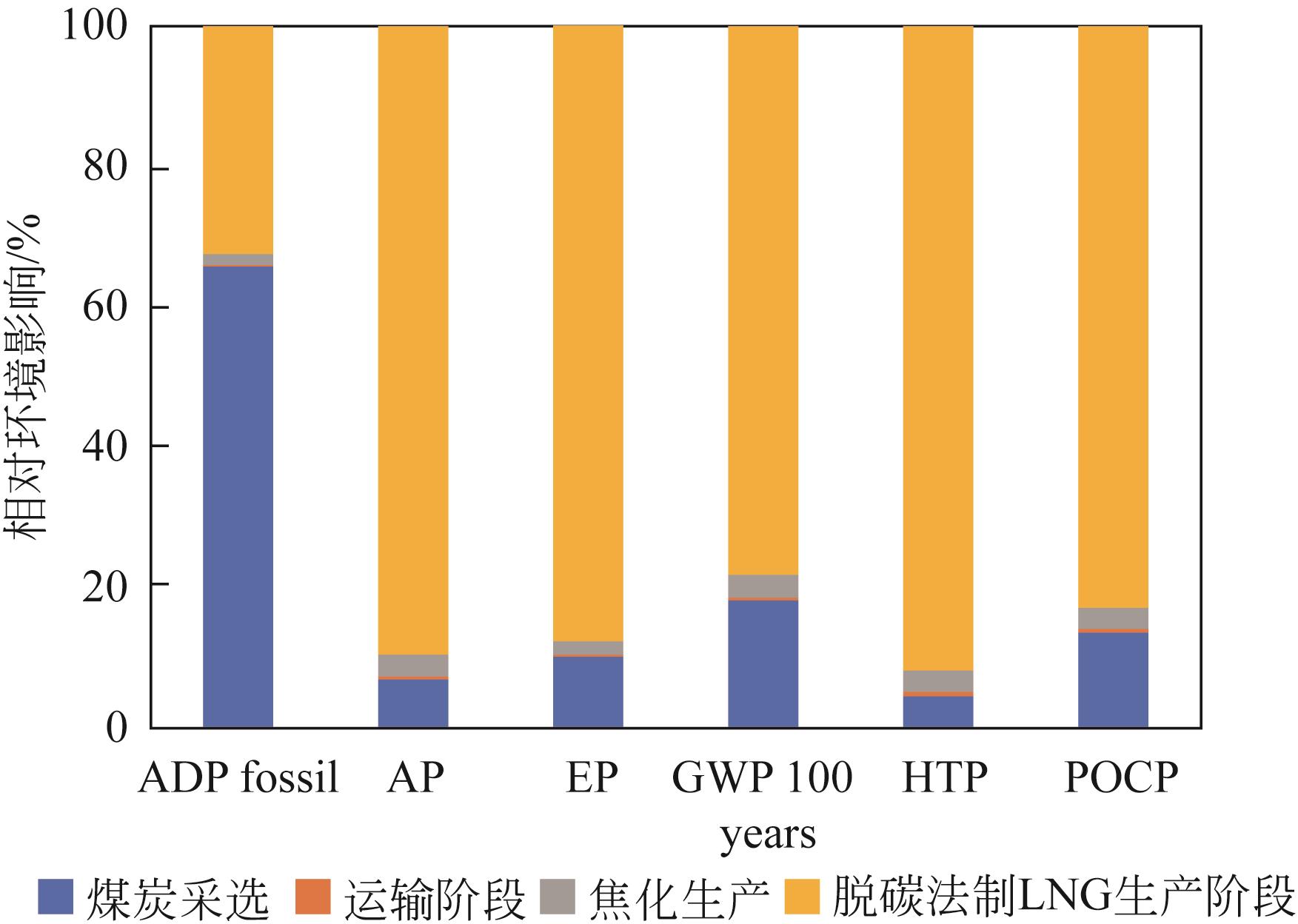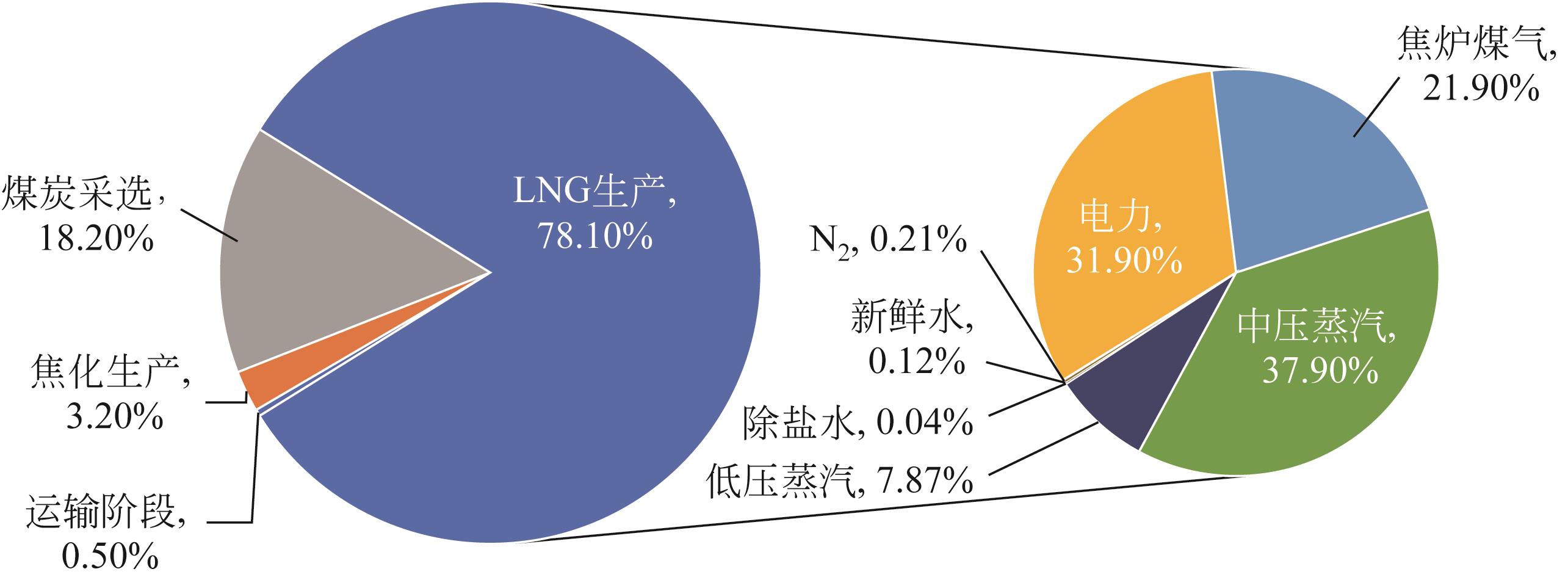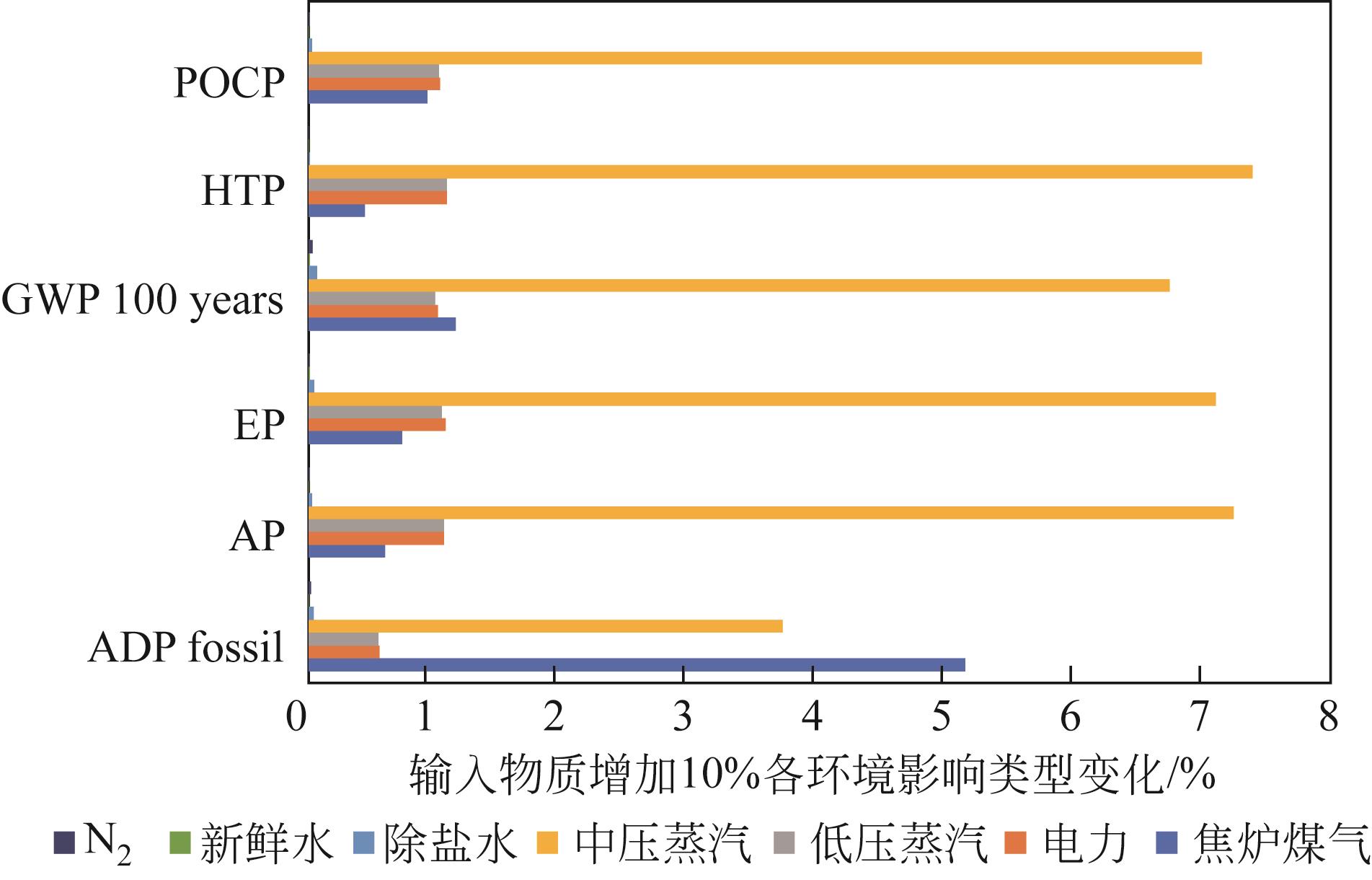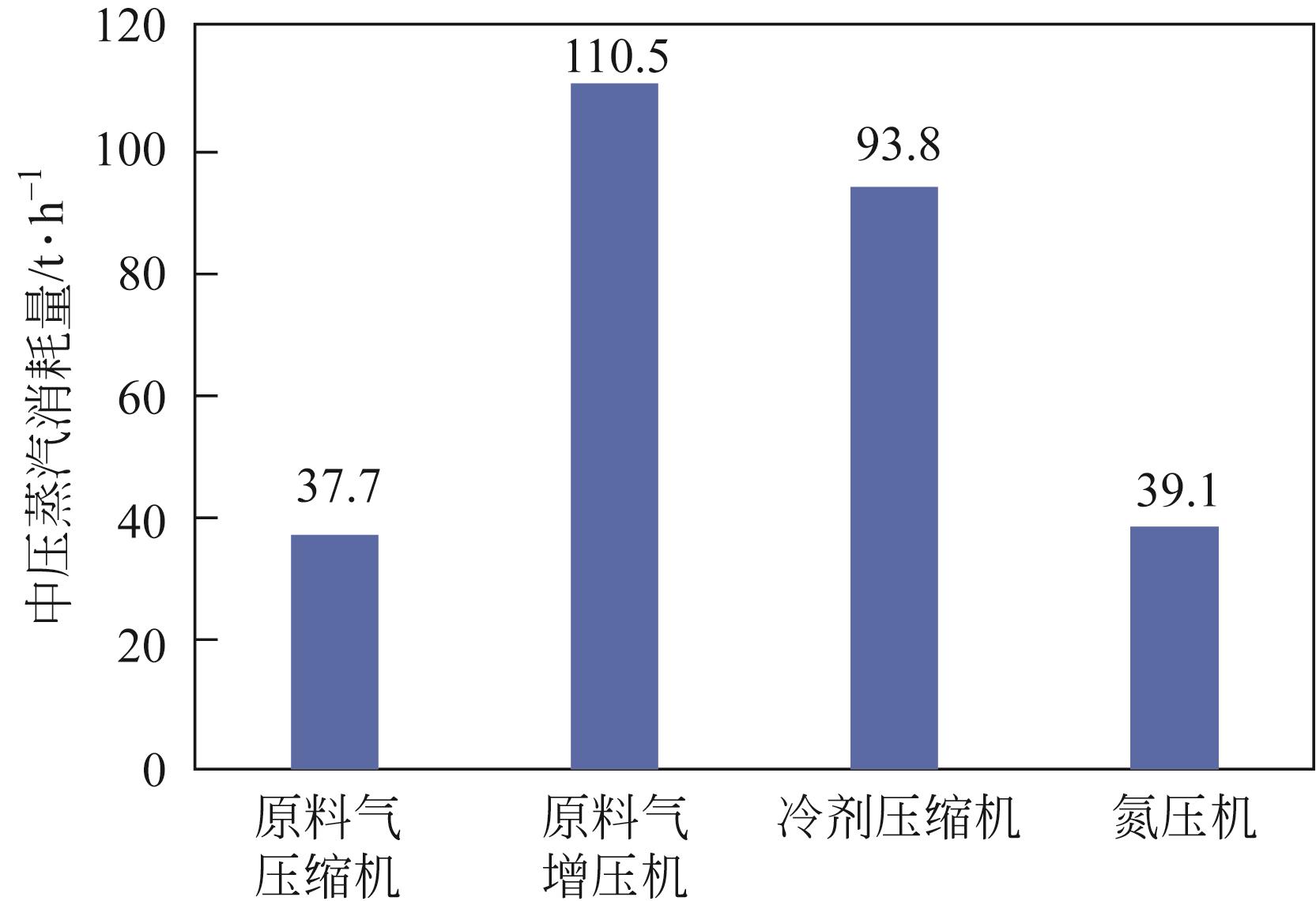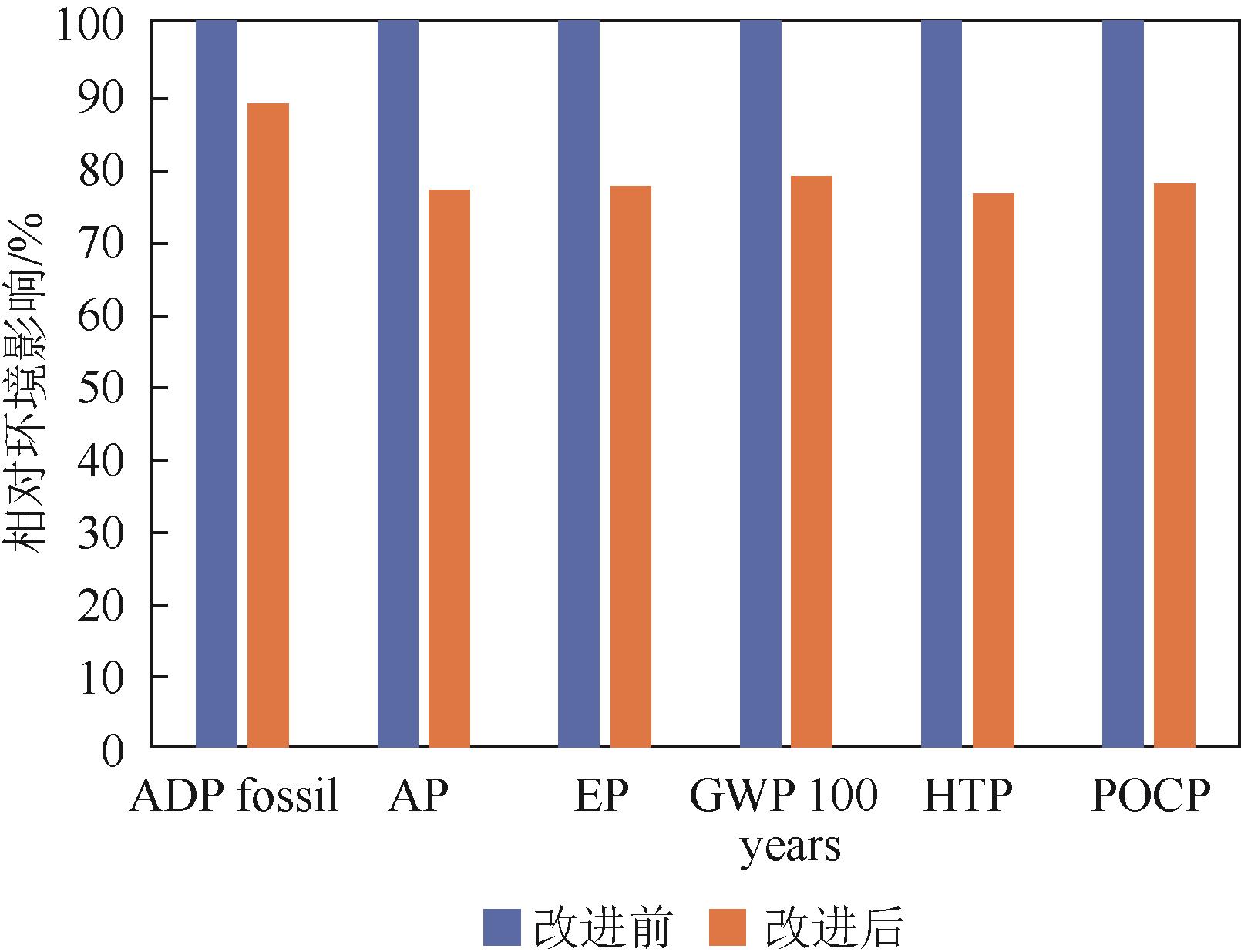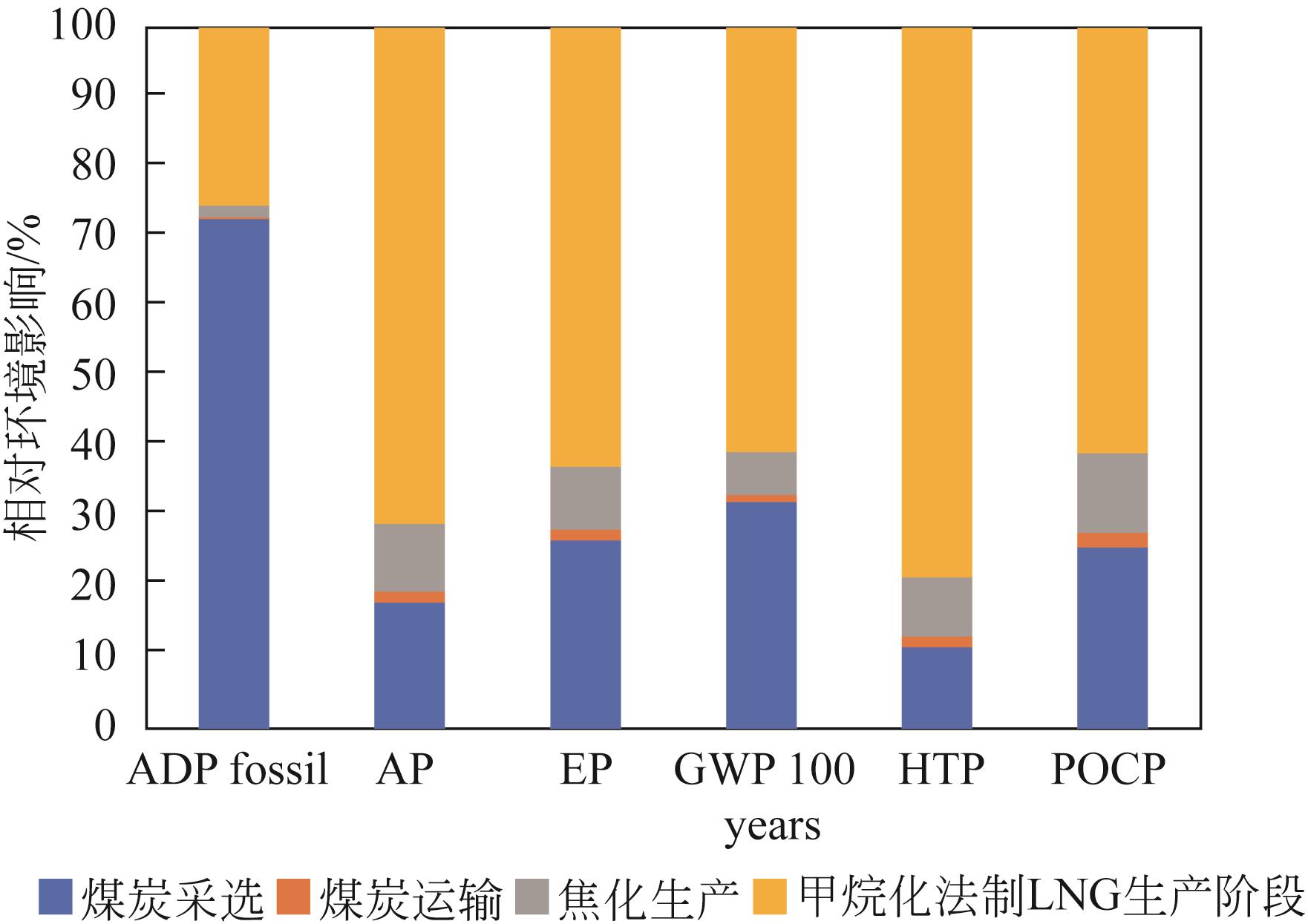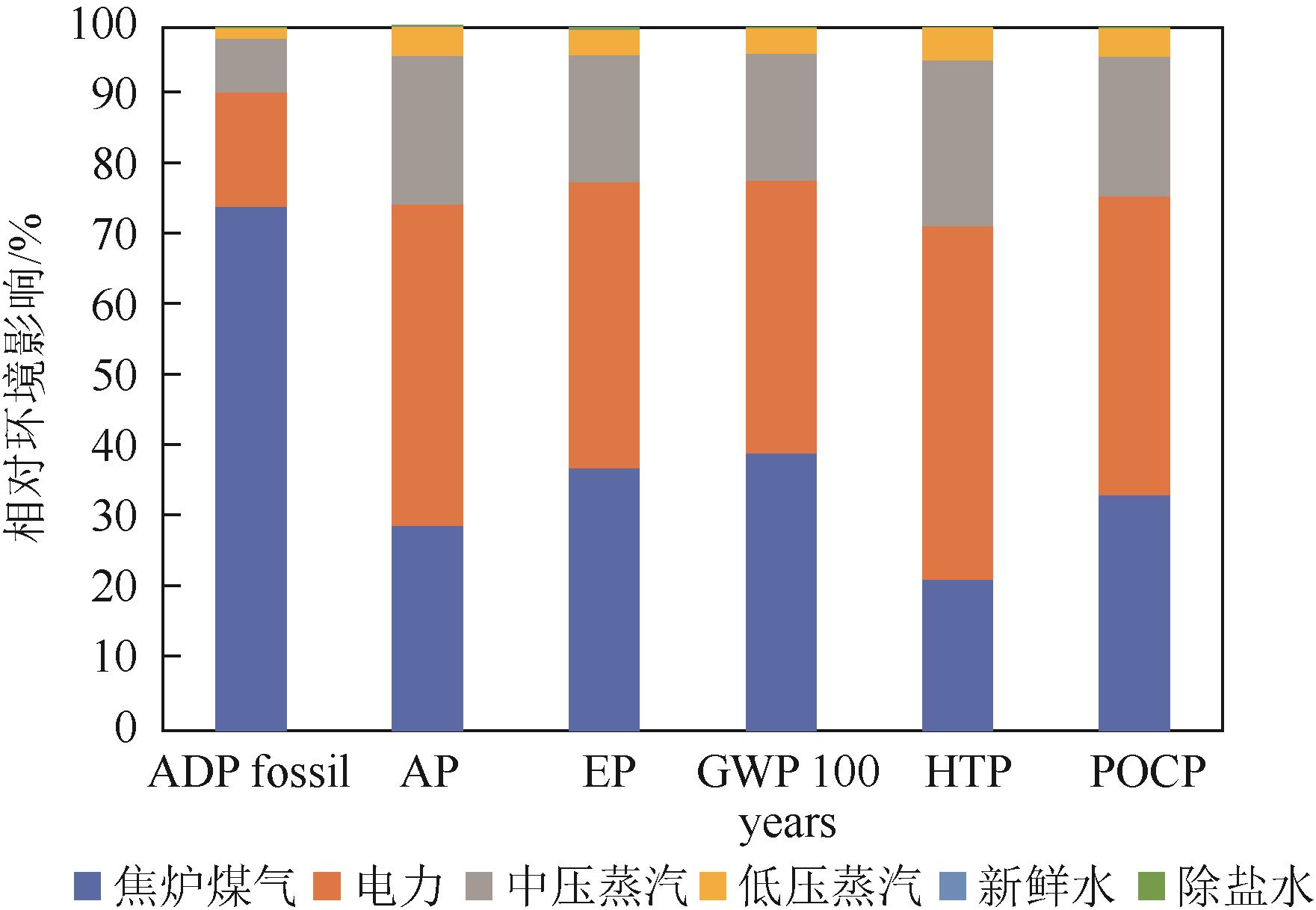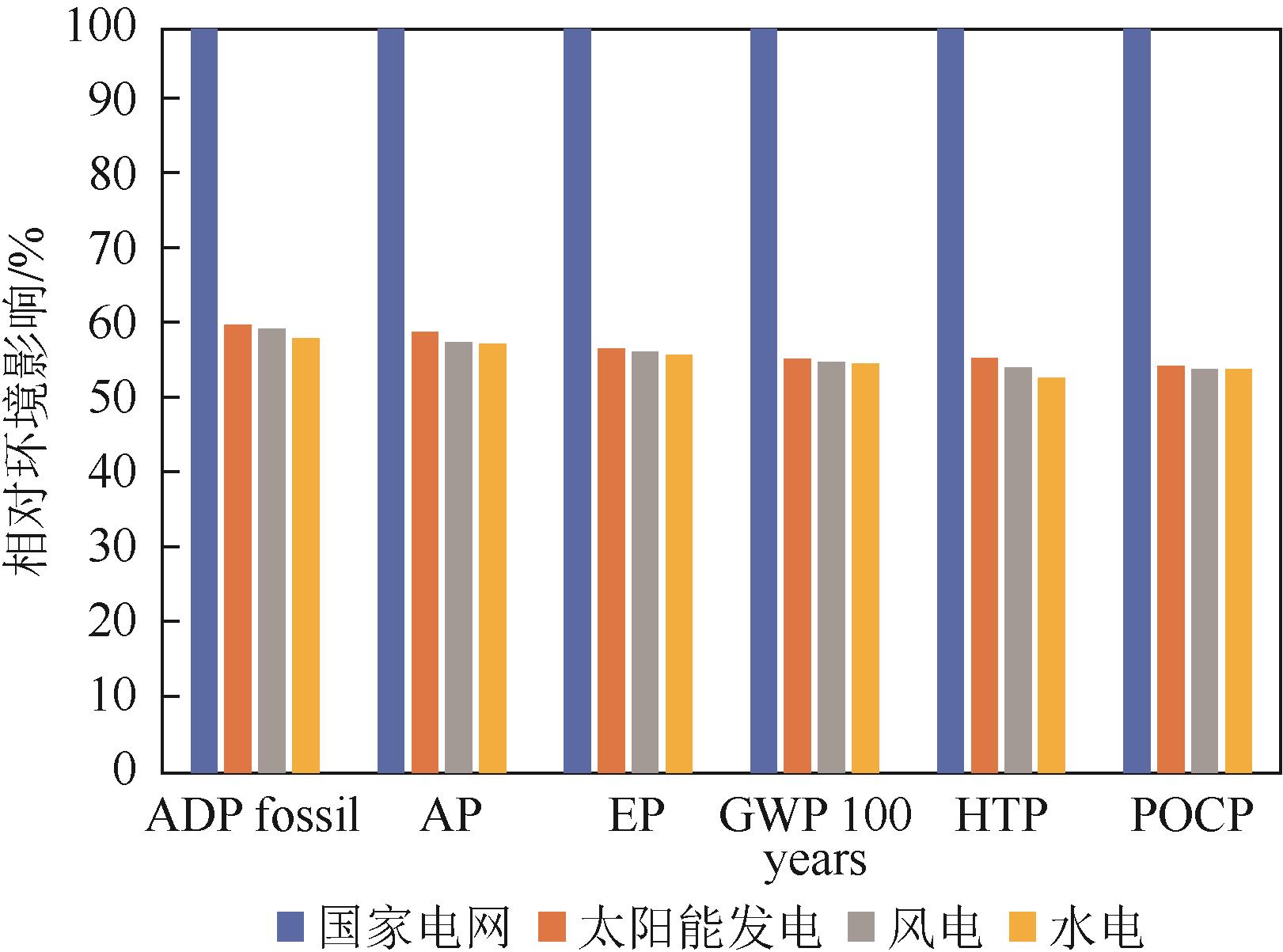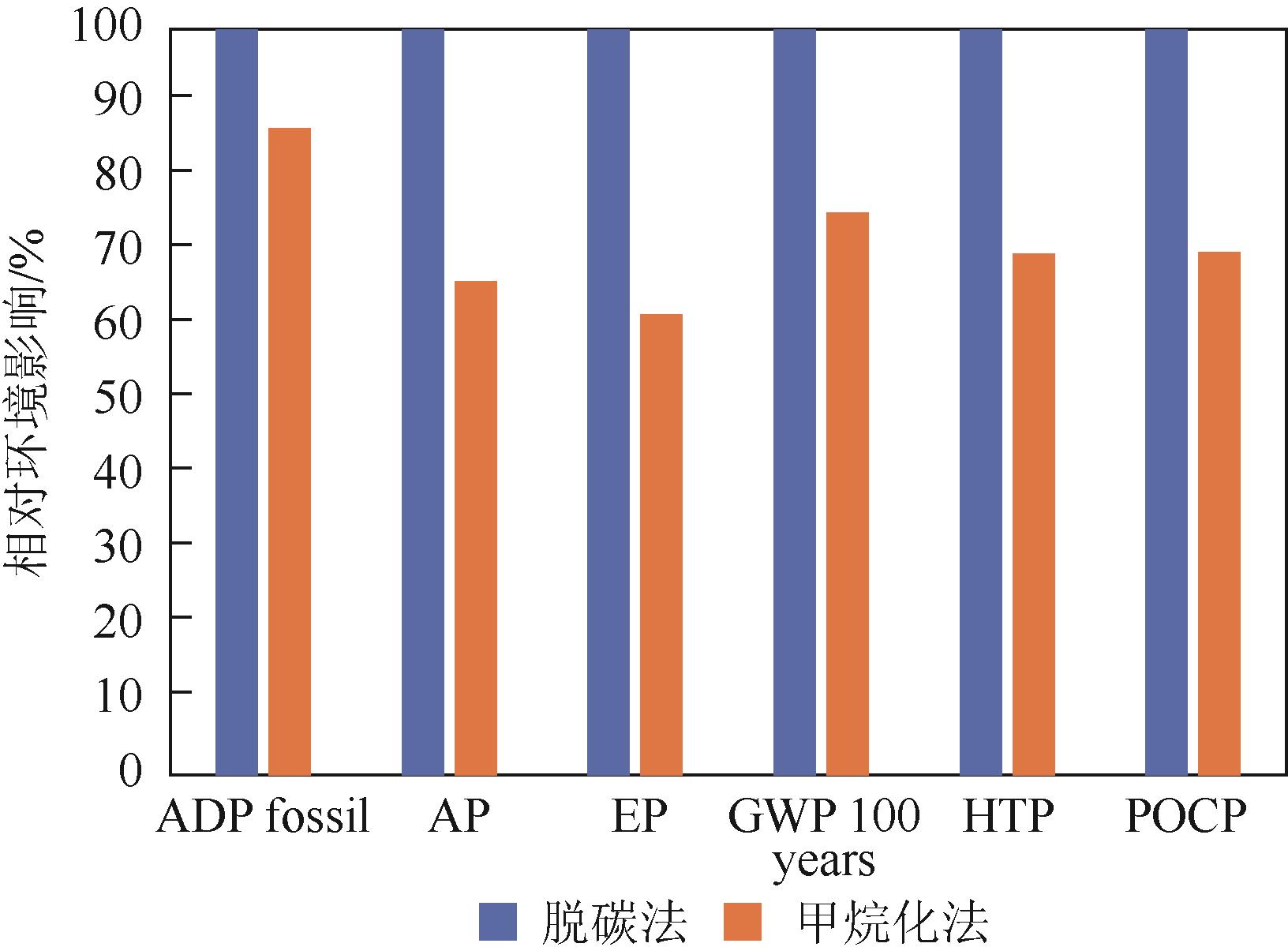| 1 |
中国炼焦行业协会. 焦化行业碳达峰碳中和行动方案(节选)[J]. 煤化工, 2022, 50(4): 1-2.
|
|
China Coking Industry Association. Peak carbon dioxide emissions Carbon Neutralization Action Plan for coking industry (Excerpt)[J]. Coal Chemical Industry, 2022, 50(4): 1-2.
|
| 2 |
李晶莹. 焦化多联产系统的生命周期评价与系统分析[D]. 西安: 西北大学, 2018.
|
|
LI Jingying. Life cycle assessment and system analysis of coking poly-generation system[D]. Xi’an: Northwest University, 2018.
|
| 3 |
中国炼焦行业协会. 关于印发《焦化行业“十四五”发展规划纲要》的通知[J]. 煤化工, 2021, 49(1): 1-3, 25.
|
|
China Coking Industry Association. Notice on printing and distributing the outline of the “Fourteenth Five-year Plan” for coking industry[J]. Coal Chemical Industry, 2021, 49(1): 1-3, 25.
|
| 4 |
李正, 吴琼, 周飞, 等. 焦炉煤气制液化天然气的发展现状及趋势[J]. 煤炭加工与综合利用, 2017(4): 18-21.
|
|
LI Zheng, WU Qiong, ZHOU Fei, et al. Development status and trend of coke oven gas to liquefied natural gas[J]. Coal Processing & Comprehensive Utilization, 2017(4): 18-21.
|
| 5 |
HELLWEG S, MILÀ I CANALS L. Emerging approaches, challenges and opportunities in life cycle assessment[J]. Science, 2014, 344(6188): 1109-1113.
|
| 6 |
杨倩苗. 建筑产品的全生命周期环境影响定量评价[D]. 天津: 天津大学, 2009.
|
|
YANG Qianmiao. Quantificational life cycle assessment of environmental impact of construction productions[D]. Tianjin: Tianjin University, 2009.
|
| 7 |
王小伍, 华贲. 液化天然气、管道天然气与煤制天然气的比较分析[J]. 化工学报, 2009, 60(S1): 35-38.
|
|
WANG Xiaowu, HUA Ben. Comparison between liquefied natural gas, pipe natural gas and substitute natural gas[J]. Journal of the Chemical Industry and Engineering Society of China, 2009, 60(S1): 35-38.
|
| 8 |
LI Jingying, ZHANG Zhuangzhuang, ZHANG Suisui, et al. Life cycle assessment of liquefied natural gas production from coke oven gas in China[J]. Journal of Cleaner Production, 2021, 329: 129609.
|
| 9 |
VEGA PUGA E, MOUMIN G, NEUMANN N C, et al. Holistic view on synthetic natural gas production: A technical, economic and environmental analysis[J]. Energies, 2022, 15(5): 1608.
|
| 10 |
NIE Yuhao, ZHANG Siduo, LIU R E, et al. Greenhouse-gas emissions of Canadian liquefied natural gas for use in China: Comparison and synthesis of three independent life cycle assessments[J]. Journal of Cleaner Production, 2020, 258: 120701.
|
| 11 |
KHOO Hsien Hui. LCA of mixed generation systems in singapore: Implications for national policy making[J]. Energies, 2022, 15(24): 9272.
|
| 12 |
MALLAPRAGADA D S, REYES-BASTIDA E, ROBERTO F, et al. Life cycle greenhouse gas emissions and freshwater consumption of liquefied Marcellus shale gas used for international power generation[J]. Journal of Cleaner Production, 2018, 205: 672-680.
|
| 13 |
KASUMU A S, LI V, COLEMAN J W, et al. Country-level life cycle assessment of greenhouse gas emissions from liquefied natural gas trade for electricity generation[J]. Environmental Science & Technology, 2018, 52(4): 1735-1746.
|
| 14 |
ROMAN-WHITE S A, LITTLEFIELD J A, FLEURY K G, et al. LNG supply chains: A supplier-specific life-cycle assessment for improved emission accounting[J]. ACS Sustainable Chemistry & Engineering, 2021, 9(32): 10857-10867.
|
| 15 |
KHAN M I, SHAHRESTANI M, HAYAT T, et al. Life cycle (well-to-wheel) energy and environmental assessment of natural gas as transportation fuel in Pakistan[J]. Applied Energy, 2019, 242: 1738-1752.
|
| 16 |
ANDREW B, HAN Jeongwoo, CLARK C E, et al. Life-cycle greenhouse gas emissions of shale gas, natural gas, coal, and petroleum[J]. Environmental Science & Technology, 2012, 46(2): 619-627.
|
| 17 |
SHI Junli, LI Tao, PENG Shitong, et al. Comparative life cycle assessment of remanufactured liquefied natural gas and diesel engines in China[J]. Journal of Cleaner Production, 2015, 101: 129-136.
|
| 18 |
SONG Hongqing, Xunmin OU, YUAN Jiehui, et al. Energy consumption and greenhouse gas emissions of diesel/LNG heavy-duty vehicle fleets in China based on a bottom-up model analysis[J]. Energy, 2017, 140: 966-978.
|
| 19 |
SUN Shouheng, ERTZ M. Life cycle assessment and Monte Carlo simulation to evaluate the environmental impact of promoting LNG vehicles[J]. MethodsX, 2020, 7: 101046.
|
| 20 |
TAGLIAFERRI C, CLIFT R, LETTIERI P, et al. Liquefied natural gas for the UK: A life cycle assessment[J]. The International Journal of Life Cycle Assessment, 2017, 22(12): 1944-1956.
|
| 21 |
宋国辉, 肖军, 沈来宏. 生物质基合成天然气(BioSNG)的生命周期评价[C]//2013中国环境科学学会学术年会论文集(第四卷). 昆明, 2013: 1197-1203.
|
|
SONG Guohui, XIAO Jun, SHEN Laihong. Life cycle assessment of biomass-based synthetic natural gas (BioSNG)[C]// Proceedings of the 2013 Annual Conference of the Chinese Society for Environmental Science (Volume Ⅳ). Kunming, 2013: 1197-1203.
|
| 22 |
LI Jingying, MA Xiaoxun, LIU Heng, et al. Life cycle assessment and economic analysis of methanol production from coke oven gas compared with coal and natural gas routes[J]. Journal of Cleaner Production, 2018, 185: 299-308.
|
| 23 |
LI Jingying, ZHANG Suisui, NIE Yan, et al. A holistic life cycle evaluation of coking production covering coke oven gas purification process based on the subdivision method[J]. Journal of Cleaner Production, 2020, 248: 119183.
|
| 24 |
杨义振. 浅谈焦炉煤气制液化天然气[J]. 石化技术, 2016, 23(4): 49-50.
|
|
YANG Yizhen. Analysis of LNG production with coke oven gas[J]. Petrochemical Industry Technology, 2016, 23(4): 49-50.
|
| 25 |
International Organization for Standardization(ISO). Environmental management—Life cycle assessment—Principles and framework [S]. Genève, Switzerland, 2006.
|
| 26 |
International Organization for Standardization(ISO). Environmental management—Life cycle assessment—Requirements and guidelines [S]. Genève, Switzerland, 2006.
|
| 27 |
国家质量监督检验检疫总局, 中国国家标准化管理委员会. 钢铁产品制造生命周期评价技术规范: [S]. 北京: 中国标准出版社, 2014.
|
|
General Administration of Quality Supervision, Inspection and Quarantine of the People’s Republic of China, Standardization Administration of the People’s Republic of China. Life cycle assessment specification on steel products(Product category rules): [S]. Beijing: Standards Press of China, 2014.
|
| 28 |
中华人民共和国生态环境部, 国家环境保护总局. 清洁生产标准 炼焦行业: [S]. 北京: 中国环境科学出版社, 2003.
|
|
Ministry of Ecology and Environment of the People’s Republic of China, State Environmental Protection Administration. Cleaner production standard—Coking industry: [S]. Beijing: China Environmental Science Press, 2003.
|
| 29 |
HERRMANN I T, MOLTESEN A. Does it matter which life cycle assessment (LCA) tool you choose?—A comparative assessment of SimaPro and GaBi[J]. Journal of Cleaner Production, 2015, 86: 163-169.
|
| 30 |
GUINÉE J B. Handbook on life cycle assessment: Operational guide to the ISO standards[M]. Springer Science & Business Media, 2002.
|
 ), 马龙飞1, 潘一搏1, 卢山1, 张红娟1, 徐龙1,2, 马晓迅1,2
), 马龙飞1, 潘一搏1, 卢山1, 张红娟1, 徐龙1,2, 马晓迅1,2
 ), MA Longfei1, PAN Yibo1, LU Shan1, ZHANG Hongjuan1, XU Long1,2, MA Xiaoxun1,2
), MA Longfei1, PAN Yibo1, LU Shan1, ZHANG Hongjuan1, XU Long1,2, MA Xiaoxun1,2


